
Media/news/journalism researcher, empiricist, occasional contrarian. Professor, Dep. of Communication, U of Copenhagen, Senior Research Associate @risj_oxford
How to get URL link on X (Twitter) App




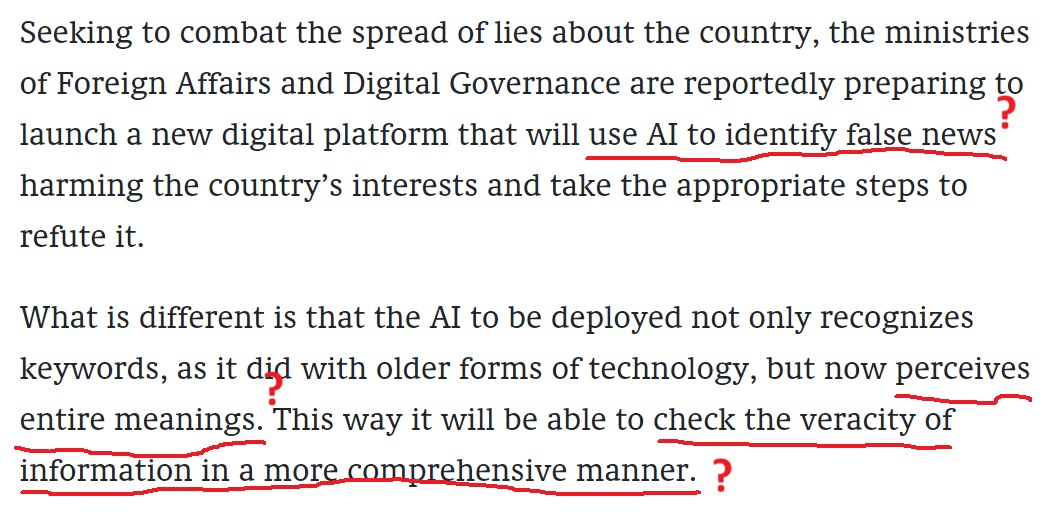
 Because so much of the most potentially consequential misinfo, including false news and lies, is fundamentally political, there is real and perceived conflict of interests when govs' want to play role as arbiters of truth.
Because so much of the most potentially consequential misinfo, including false news and lies, is fundamentally political, there is real and perceived conflict of interests when govs' want to play role as arbiters of truth.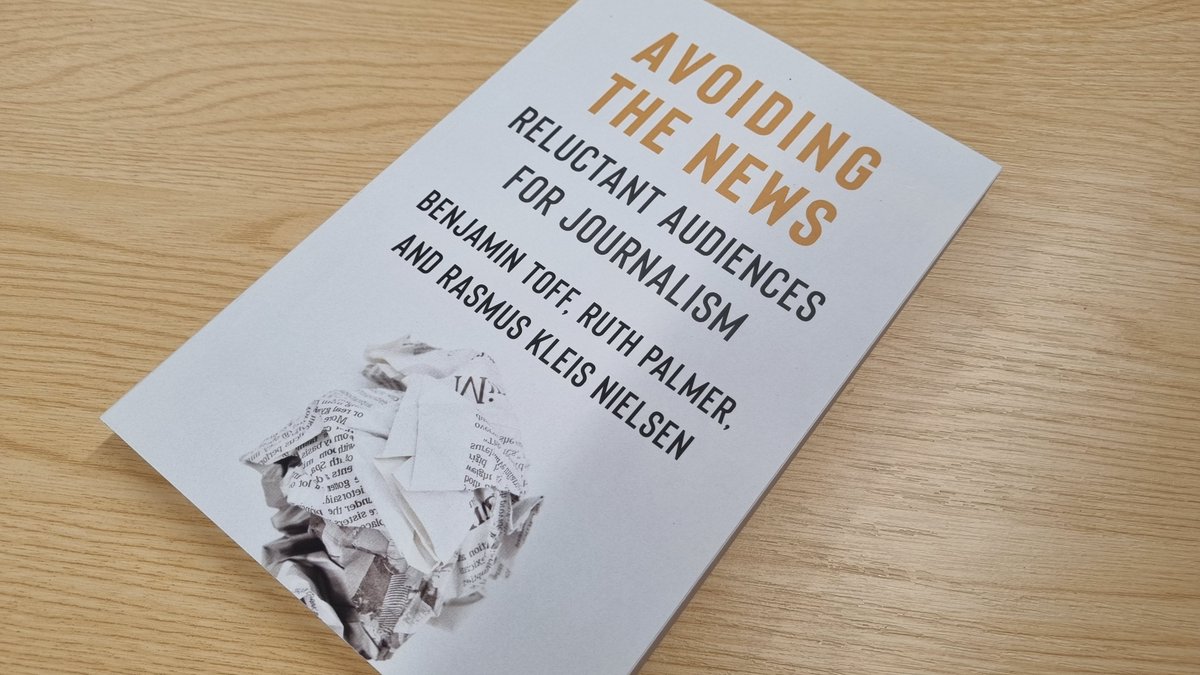
 The social contract btw journalism and much of the public is fraying - news use is declining, interest in news down, avoidance widespread.
The social contract btw journalism and much of the public is fraying - news use is declining, interest in news down, avoidance widespread.

 BAD news, in already difficult context facing political attacks, competition from platforms, & much more, is that negative perceptions are very widespread. Half or more of survey respondents say they think journalists try to manipulate the public to serve powerful politicians 2/7
BAD news, in already difficult context facing political attacks, competition from platforms, & much more, is that negative perceptions are very widespread. Half or more of survey respondents say they think journalists try to manipulate the public to serve powerful politicians 2/7 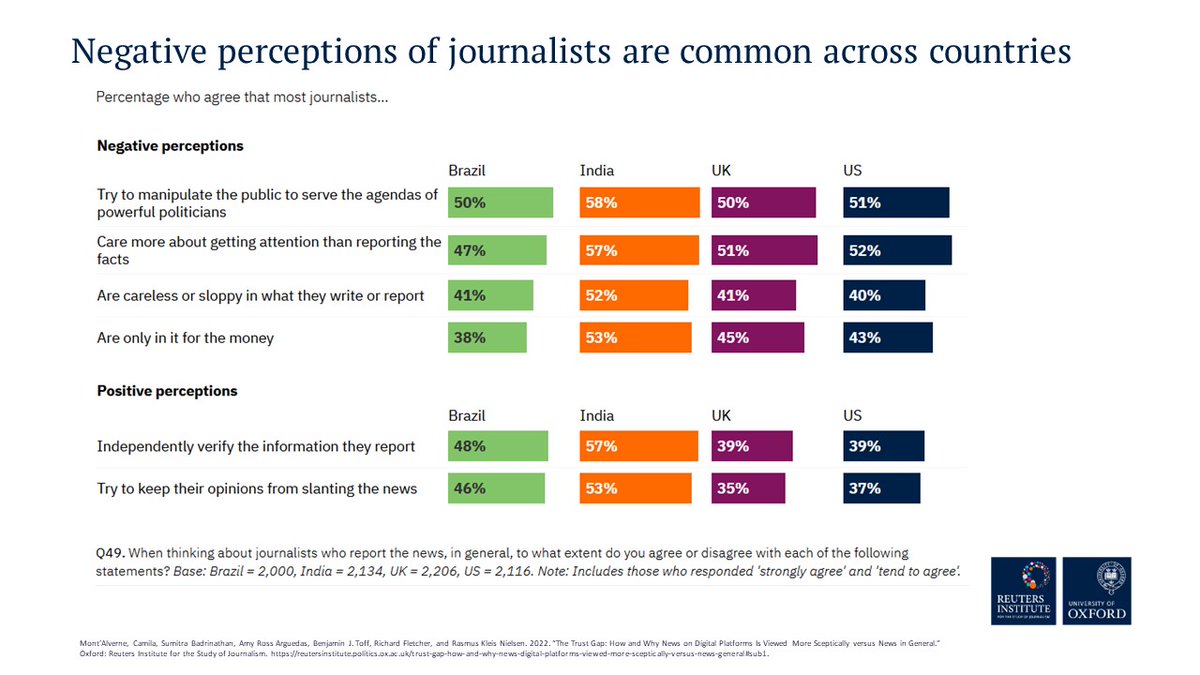
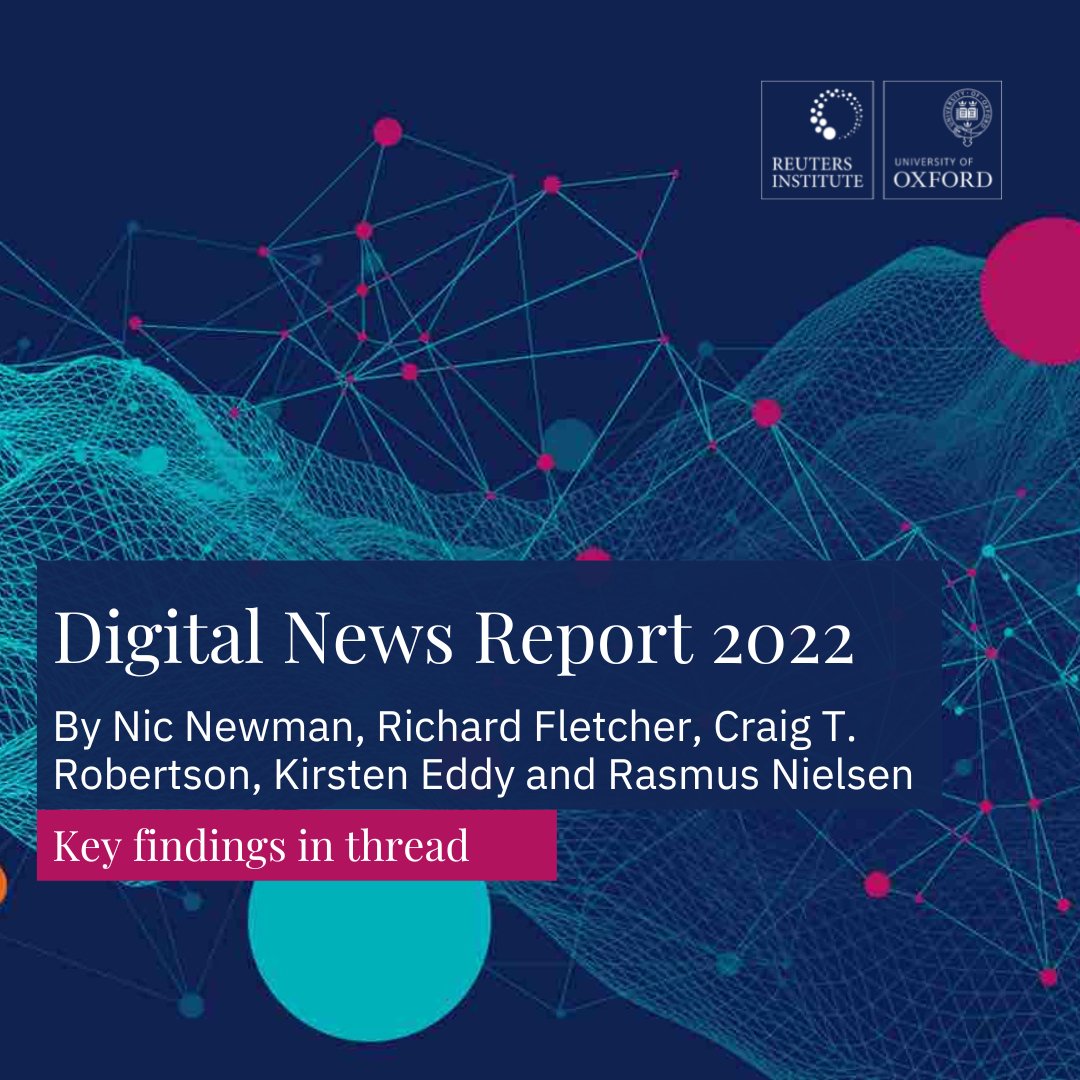
 A growing number of news media willing to embrace digital and able to offer distinct journalism in an incredibly competitive marketplace do well by doing good. But many struggle in an unforgiving winner-takes-most online environment, for example when it comes to subscriptions 2/9
A growing number of news media willing to embrace digital and able to offer distinct journalism in an incredibly competitive marketplace do well by doing good. But many struggle in an unforgiving winner-takes-most online environment, for example when it comes to subscriptions 2/9 

 Platforms do not control the means of production, but the means of connection, and they are powerless without partners
Platforms do not control the means of production, but the means of connection, and they are powerless without partners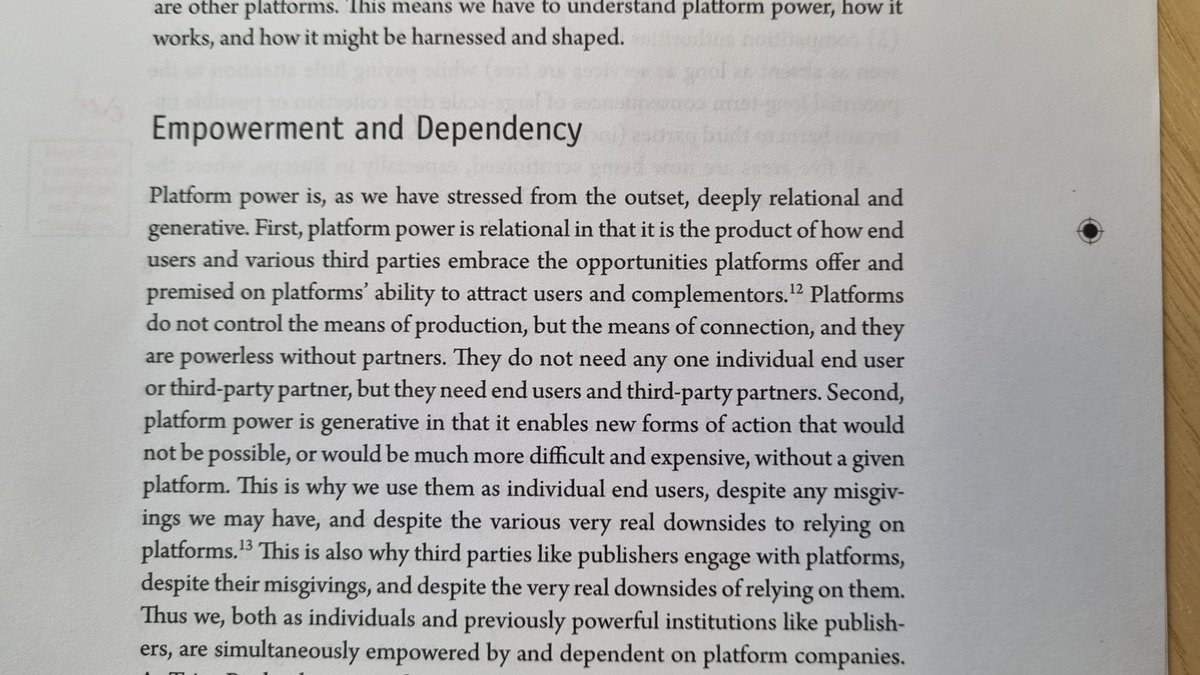
https://twitter.com/rasmus_kleis/status/1304468894053269505"First, the source of the misleading information was linked to the ruling dispensation ... Second, the target [was] a critic of the government ... Third, the information was legitimised by mainstream media" @NeelanjanSircar writes in penetrating case study theindiaforum.in/article/disinf…


https://twitter.com/herrhorn/status/14326027215221719052) Where is misinformation coming from? In addition to platforms such as Facebook, YouTube etc increasingly, scholars focus on intersection between politics and media (see @YBenkler et al) oxford.universitypressscholarship.com/view/10.1093/o… and identity (see @madhavi_reddi et al) doi.org/10.1177/146144… 2/5

 Trust in the news has grown, on average, by six percentage points in wake of Coronavirus pandemic.
Trust in the news has grown, on average, by six percentage points in wake of Coronavirus pandemic.

 In my foreword, I write "if governments want to do more than talk about the value of journalism, and actually help [those] who are leading on forging new ways forward for the profession and the industry, they will need to step up and take real action" 2/19 rasmuskleisnielsen.net/2021/06/16/les…
In my foreword, I write "if governments want to do more than talk about the value of journalism, and actually help [those] who are leading on forging new ways forward for the profession and the industry, they will need to step up and take real action" 2/19 rasmuskleisnielsen.net/2021/06/16/les…

 🇪🇺 Wednesday June 23 we'll host a launch event focused on Europe.
🇪🇺 Wednesday June 23 we'll host a launch event focused on Europe. 

